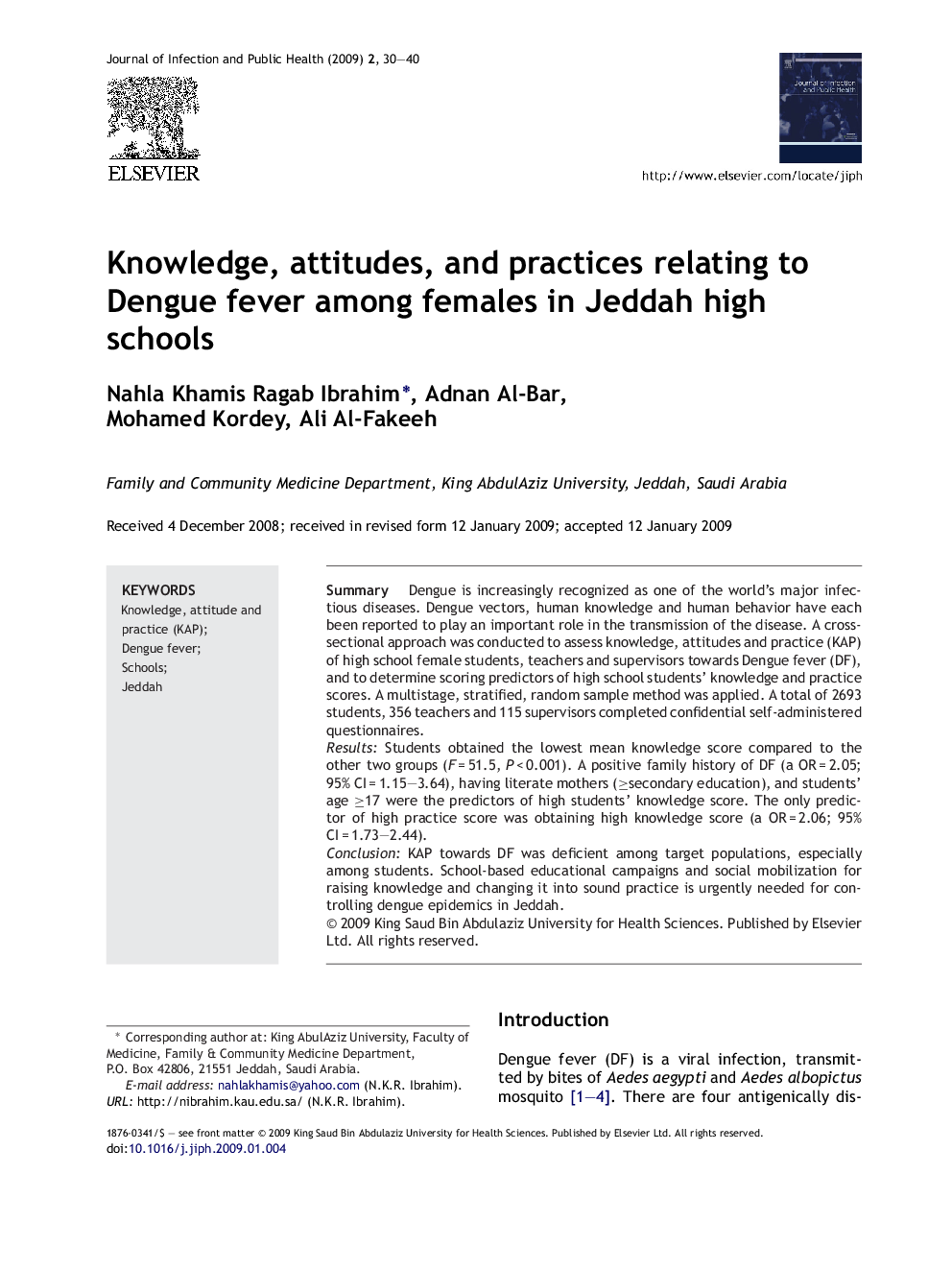| Article ID | Journal | Published Year | Pages | File Type |
|---|---|---|---|---|
| 3406403 | Journal of Infection and Public Health | 2009 | 11 Pages |
SummaryDengue is increasingly recognized as one of the world's major infectious diseases. Dengue vectors, human knowledge and human behavior have each been reported to play an important role in the transmission of the disease. A cross-sectional approach was conducted to assess knowledge, attitudes and practice (KAP) of high school female students, teachers and supervisors towards Dengue fever (DF), and to determine scoring predictors of high school students’ knowledge and practice scores. A multistage, stratified, random sample method was applied. A total of 2693 students, 356 teachers and 115 supervisors completed confidential self-administered questionnaires.ResultsStudents obtained the lowest mean knowledge score compared to the other two groups (F = 51.5, P < 0.001). A positive family history of DF (a OR = 2.05; 95% CI = 1.15–3.64), having literate mothers (≥secondary education), and students’ age ≥17 were the predictors of high students’ knowledge score. The only predictor of high practice score was obtaining high knowledge score (a OR = 2.06; 95% CI = 1.73–2.44).ConclusionKAP towards DF was deficient among target populations, especially among students. School-based educational campaigns and social mobilization for raising knowledge and changing it into sound practice is urgently needed for controlling dengue epidemics in Jeddah.
